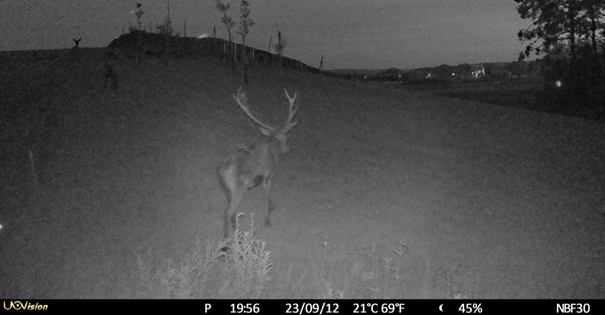Friss hazai aranysakál (Canis aureus) kutatás eredményeiről olvashatunk az Applied Animal Behaviour Science tudományos folyóirat napokban megjelenő egyik cikkében. A kutatók GPS telemetriás vizsgálat során figyeltek fel egy kölykeiket nevelő alfapár és az otthonterületük szomszédságában élő szuka különös szociális viselkedésére. A Dél-Dunántúlon végzett kutatásban résztvevők között Kuratóriumunk több tagja is szerepel. Gratulálunk az újabb kutatási eredményeikhez, cikküket örömmel osztjuk meg a honlapunk látogatóival.
Szerzők: Csányi Erika, Dr. Lanszki József, Dr. Heltai Miklós, Pölös Máté, Dr. Schally Gergely, Dr. Sándor Gyula
Abstract
The range of the golden jackal (Canis aureus) has expanded rapidly in Europe in recent decades. The lack of comprehensive behavioral data limits our understanding of their role in the ecosystem. Flexibility in social behavior, including the features of the mating system and the presence of helpers, may have contributed to the successful expansion. In areas of high jackal density, non-breeding individuals face options such as dispersion or, on conversely, waiting for the possibility of vacancies. Following the behavior of 91 GPS-collared golden jackals in Hungary, we detected a unique interaction between an alpha pair (F1 female and M1 male) with offspring and a neighboring female (F2 female). F1 and M1 have reared at least three pups, and the alphas’ home ranges and core areas also overlapped significantly. The unmated F2, had been living separately in the immediate vicinity of the alpha pair as part of a family group, rapidly entered the former alpha pair’s home range within a day after F1’s death. F2 did not return to the previous home range and remained close to the alpha male, remaining in its new home range even after M1 died. We documented that an unrelated, non-reproductive female replaced a deceased alpha female outside the breeding season. This previously undocumented pair bond formation in golden jackal suggests an evolutionarily beneficial strategy. The expansion may have implications for wildlife management, grazing-based animal husbandry, competition with other carnivores and ecosystem services. Rapid mate replacement may also contribute to our understanding of the reasons for the rapid population expansion.
A teljes cikk letölthető az alábbi linken:
Javasolt hivatkozási forma:
Csányi, E. & Lanszki, J. & Heltai, M. & Pölös, M. & Schally, G. & Sándor, Gy. (2023): The first evidence of the monogamous golden jackal’s adaptive response to partner loss. Applied Animal Behaviour Science, 269: 106095. https://doi.org/10.1016/j.applanim.2023.106095
(Borítókép: Gschwindt Márk)



